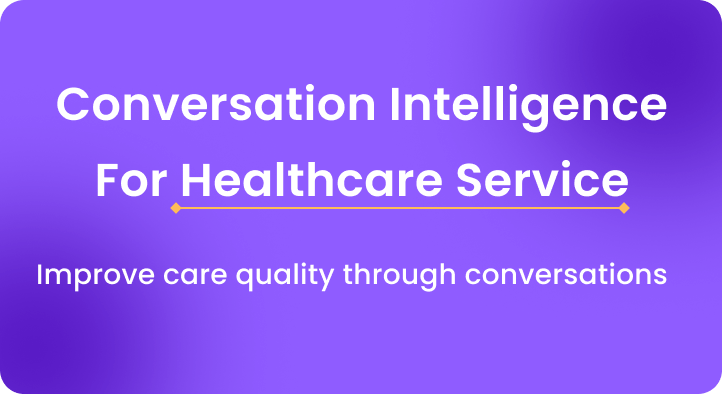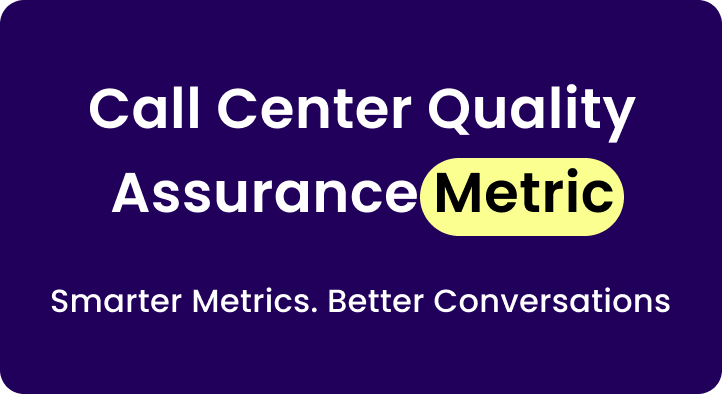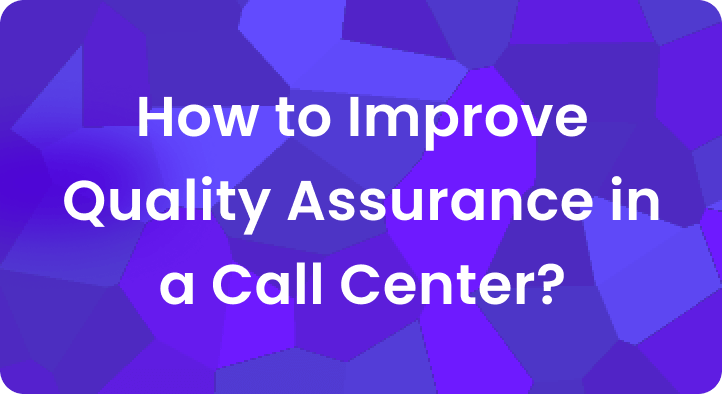If you run a healthcare clinic, handle insurance claims, or manage patient data for a hospital, you’ve probably felt the pressure of making sure all those phone calls and data transfers stay private.
It’s like juggling a million puzzle pieces—you’ve got anxious patients waiting, staff pressed for time, and rules that need strict attention.
When someone calls about a lab result or a prescription, there’s zero room for mistakes in protecting their data.
That’s where the concept of a HIPAA-compliant call center comes into play.
In this article, you’ll learn what these call centers are, why they matter, and how they help you secure sensitive patient data daily.
Keep reading!
A. What is a HIPAA-compliant call center?
A HIPAA-compliant call center is a facility or service that manages patient or member calls in a way that meets the standards set by the Health Insurance Portability and Accountability Act (HIPAA).
HIPAA is basically the U.S. law that creates rules for protecting private health information.
When we say a call center follows HIPAA, we mean it has systems in place to keep patient information secure from the moment a call begins to the second it ends.
A HIPAA-compliant call center works behind the scenes to protect that info, whether it’s using encrypted call center systems, secure call handling strategies, or other security measures.
But that’s not the whole story. A HIPAA-compliant call center doesn’t just pick up calls. It also manages data privacy, call recording policies, and staff training in certain areas.
B. Importance of HIPAA-compliant call centers
Ensuring your contact center is HIPAA-verified isn’t just about ticking boxes—it’s about creating a trustworthy and efficient environment for both your team and your patients.
Let’s dive into five key benefits of maintaining HIPAA compliance in your call center:
1. Protects patient privacy and builds trust
Patient trust is vital in healthcare.
If your call center doesn’t use secure call center solutions, people will feel uneasy about sharing personal details.
The impact?
Lower patient satisfaction and possible legal issues.
By having a HIPAA-compliant call center, you’re telling patients, “Your privacy matters, and we take it seriously.”
2. Prevents costly data breaches and fines
HIPAA violations can bring some eye-watering fines.
They can range from a few thousand dollars to millions, depending on the nature of the breach.
Penalty structure for HIPAA violations:
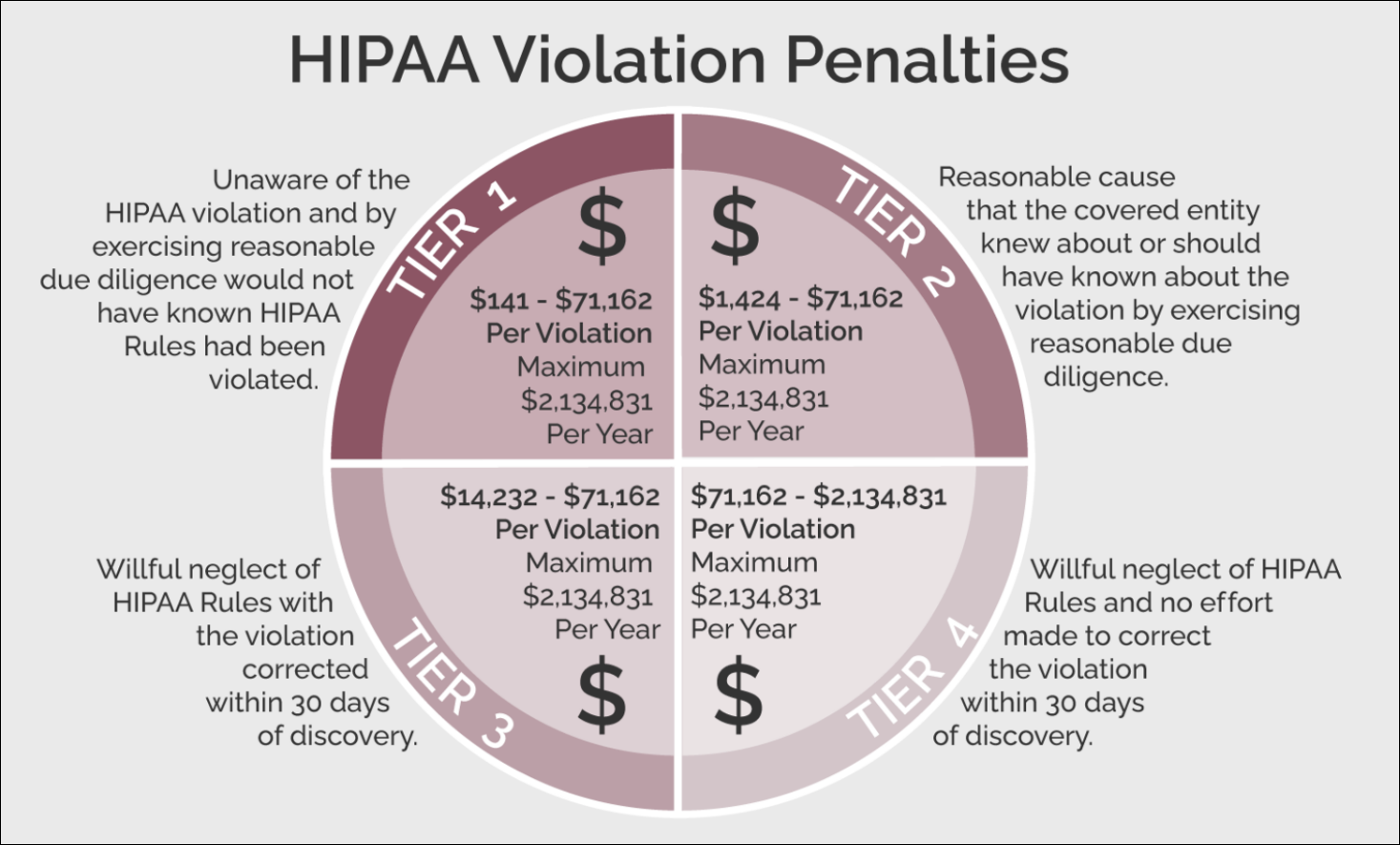
Source: Hipaajournal.com
| Penalty Tier | Level of Culpability | Minimum Penalty per Violation | Maximum Penalty per Violation | Annual Penalty Limit |
| Tier 1 | Reasonable Efforts | $141 | $71,162 | $2,134,831 |
| Tier 2 | Lack of Oversight | $1,424 | $71,162 | $2,134,831 |
| Tier 3 | Neglect – Rectified within 30 days | $14,232 | $71,162 | $2,134,831 |
| Tier 4 | Neglect – Not Rectified within 30 days | $71,162 | $2,134,831 | $2,134,831 |
In some extreme cases, there’s even the possibility of criminal charges.
Yikes!
If your center meets HIPAA compliance standards, you’ll reduce the chance of any costly slip-ups or lawsuits.
3. Enhances operational efficiency
When your call center is HIPAA compliant, it’s typically well-organized and well-documented.
That level of structure doesn’t just help you avoid trouble; it also helps you run smoother day-to-day operations.
Believe it or not, this can lead to faster call resolution times, fewer mistakes, and happier agents.
4. Future-proof your business
Healthcare regulations continue to grow stricter.
If you’re struggling now, imagine the trouble you’ll be in a year from today.
Getting your call center in line with HIPAA compliance is a big step toward ensuring you’re ready for 2025 and beyond.
5. Builds a solid reputation
It’s not just about avoiding penalties.
Being known as a facility that values data privacy puts you a notch above your competitors.
When patients see that you have secure call handling in place, they’ll want to stick with you over an organization they’re not sure about.
C. Key components of a HIPAA-compliant call center
Ensuring your call center meets HIPAA standards requires a combination of physical and digital safeguards.
Let’s explore the essential elements that make a call center HIPAA-compliant:
1. Physical security measures
When people talk about HIPAA, they often think of software or encryption. But physical security is just as crucial.
That means limiting who can get into the call center space and locking file cabinets with sensitive info.
Moreover, it’s about making sure any screens that show personal health information can’t be viewed by random passersby.
2. Network and data security
You’ll need secure call center solutions that offer encryption for data both at rest (when it’s stored) and in transit (when it’s being shared, such as during a phone call).
This includes using encrypted call center systems so patient details can’t be easily stolen.
It also means adding robust firewalls, frequent system checks, and updated antivirus software.
3. Secure call handling protocols
How do your agents answer calls that involve personal information? This is where call routing and call monitoring matter.
You need set procedures—like verifying the caller’s identity before giving out test results.
Everything must be carefully documented so each team member knows the correct steps.
4. Training and workforce management
A HIPAA-compliant call center invests time in training its staff. People have to know the rules.
They should understand what can go wrong if they take a wrong turn, and they must know how to handle data, from handling phone calls to making notes in a system.
If an agent doesn’t know the rules, you risk a HIPAA breach every time the phone rings.
5. Call monitoring and quality assurance
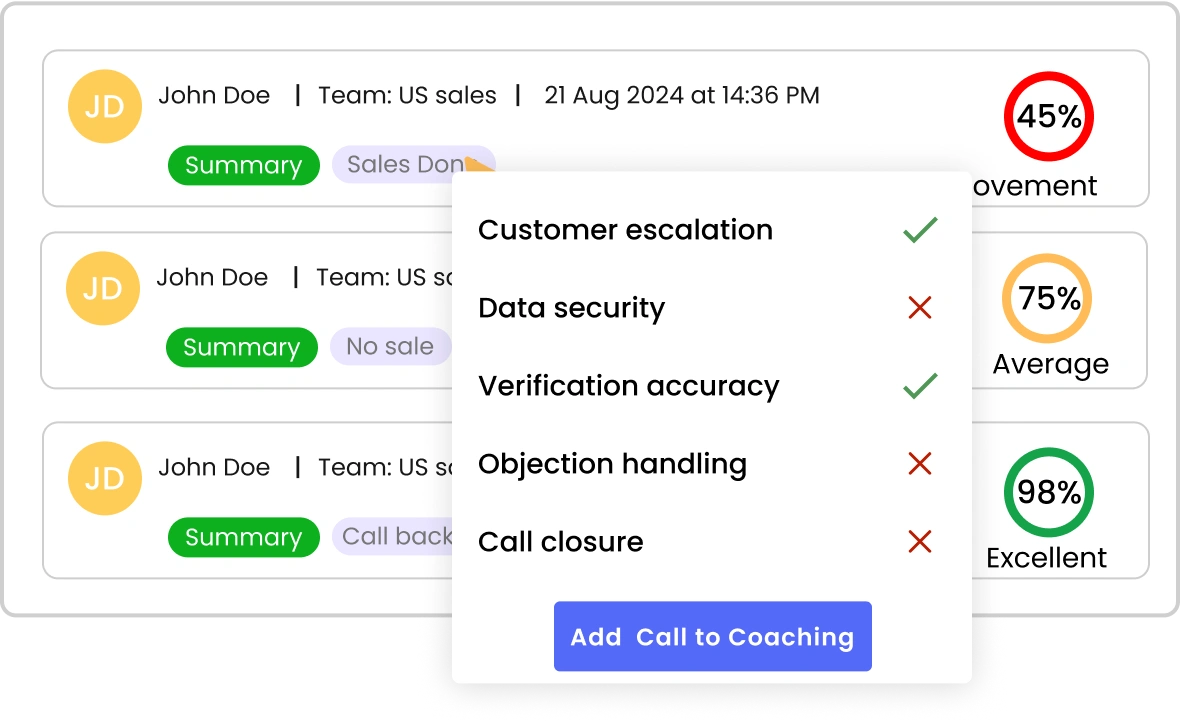
Call monitoring is a handy way to make sure your agents are following the guidelines.
This process lets you listen in on calls or review recordings to confirm no agent is reading out sensitive patient data in an unsafe manner.
Additionally, conversation intelligence and speech analytics can spot patterns or phrases that may pose a compliance risk, so you can correct them before a real problem arises.
6. Business associate agreements (BAA)
If you’re contracting with an external call center, HIPAA rules require a formal contract called a business associate agreement (BAA).
This document spells out exactly how the outside call center will protect sensitive patient data.
Without a signed BAA in place, you might share liability if something goes wrong.
D. Best practices for achieving HIPAA compliance in your Healthcare Call Center
Achieving and maintaining HIPAA compliance in your healthcare call center requires a comprehensive approach that integrates technology, policies, and staff training.
Here are the best practices to help ensure compliance:
1. Comprehensive Staff Training & Education
Empower your team with knowledge
- Regular training sessions: Conduct mandatory HIPAA training for all employees, covering topics like data privacy, security protocols, and breach reporting.
- Interactive learning: Use engaging methods such as quizzes, role-playing scenarios, and webinars to reinforce key concepts.
- Continuous education: Keep staff updated on the latest HIPAA regulations and best practices through ongoing training programs.
2. Implement robust access controls
Secure sensitive information with precision
- Role-based access: Grant access to patient information strictly based on job responsibilities, ensuring employees see only what they need.
- Strong authentication: Utilize multi-factor authentication (MFA) to add an extra layer of security for accessing sensitive data.
- Regular access reviews: Periodically audit access permissions to ensure they remain appropriate and revoke access when no longer necessary.
3. Secure communication channels
Protect data in every interaction
- Encrypted communications: To safeguard patient information during transmission, use end-to-end encryption for all calls, emails, and messaging systems.
- Secure VoIP systems: Implement Voice over Internet Protocol (VoIP) solutions that comply with HIPAA encryption standards.
- Privacy screens: Ensure that any written or digital communication displayed is shielded from unauthorized view.
4. Regular audits and risk assessments
Stay ahead of potential threats
- Scheduled audits: Perform routine compliance audits to identify and address vulnerabilities in your call center’s operations.
- Risk assessments: Conduct thorough risk assessments to evaluate the effectiveness of your security measures and identify areas for improvement.
- Actionable insights: Use audit and assessment findings to implement corrective actions and enhance overall compliance strategies.
5. Effective incident response plan
Be prepared for the unexpected
- Clear protocols: Develop a detailed incident response plan outlining steps to take during the event of a data breach or security incident.
- Designated response team: Assign specific roles and responsibilities to team members to ensure a swift and coordinated response.
- Regular drills: Conduct mock drills to test the effectiveness of your incident response plan and make necessary adjustments.
6. Maintain up-to-date policies and procedures
Ensure consistency and compliance
- Comprehensive documentation: Create detailed policies covering all aspects of HIPAA compliance, including data handling, security measures, and employee responsibilities.
- Regular updates: Review and update policies regularly to reflect changes in regulations, technology, and business practices.
- Accessible resources: Make policies accessible to all employees and ensure they consistently understand and adhere to them.
7. Use advanced call center software
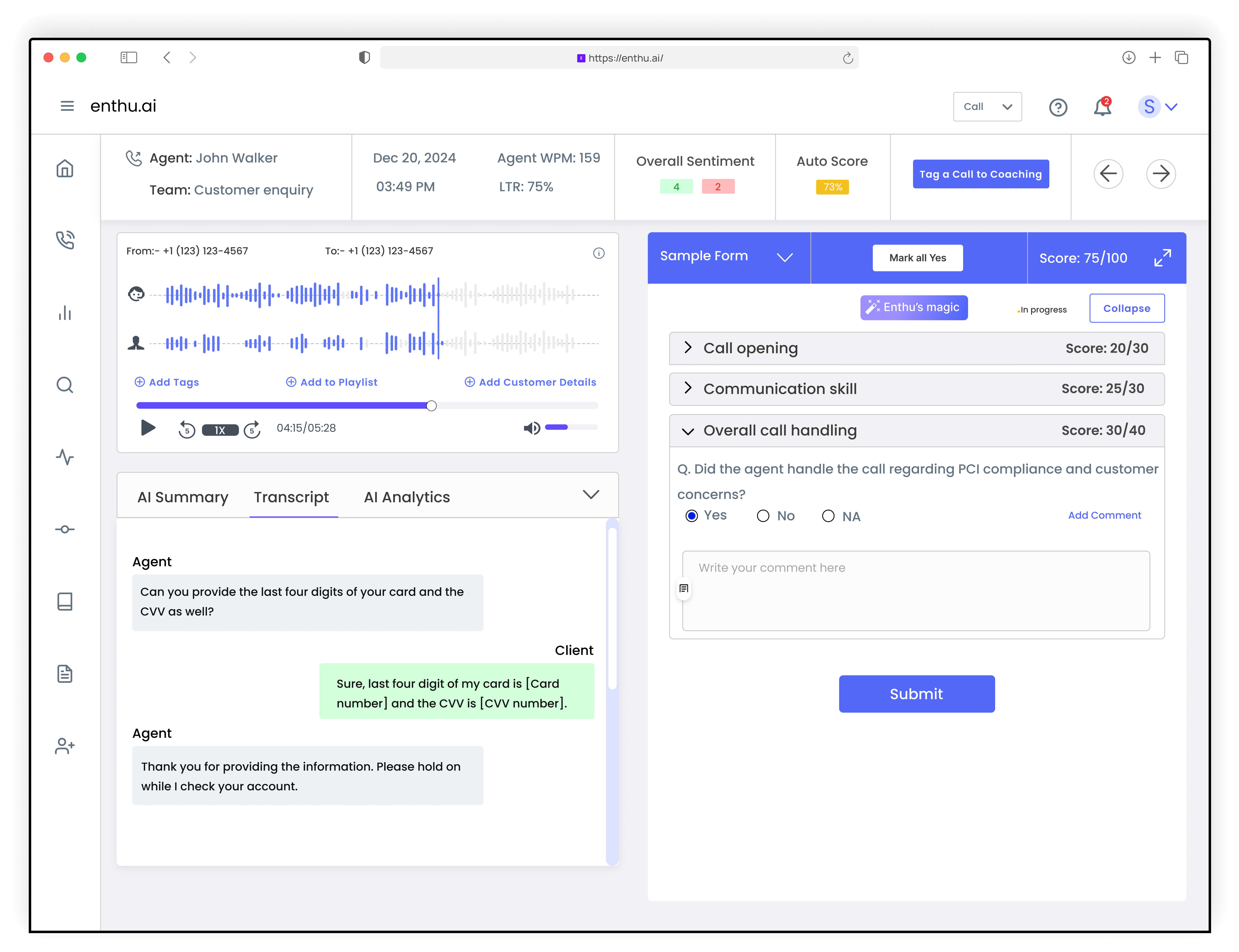
Leverage technology for enhanced compliance
- HIPAA-compliant features: Invest in call center software designed with HIPAA compliance in mind, ensuring all patient data is handled securely.
- Automated security measures: Utilize software that offers automatic encryption, secure data storage, and secure transmission of information.
- Audit trails and reporting: Choose software that provides detailed logs and reporting capabilities to track access and modifications to patient data, facilitating easier audits and compliance checks.
- Integration capabilities: Ensure the software seamlessly integrates with your existing healthcare systems and electronic health records (EHR), maintaining data integrity and security across platforms.
- Scalability and updates: Select a solution that can scale with your call center’s growth and regularly receives updates to address new security threats and compliance requirements.
E. How the right call center software can help you stay HIPAA-compliant
Managing a healthcare call center has two big responsibilities: keeping patients happy and protecting their private information.
If that sounds like juggling flaming torches, you’re not alone.
Thankfully, HIPAA-compliant call center software can extinguish the flames by giving you the right tools, training, and safety nets to keep sensitive data under lock and key.
Here’s a closer look at how the right platform helps you stay HIPAA compliant while simplifying your team’s day-to-day work.
1. 24/7 emergency response
Call center software with 24/7 emergency response capabilities ensures that urgent patient issues are securely routed to the right personnel in real time.
These systems log interactions for compliance, safeguard sensitive data, and support seamless escalation workflows, ensuring HIPAA standards are met even during emergencies.
2. Secure call recording and monitoring
Modern call center platforms offer built-in encryption for call recording and call monitoring.
This means you can safely keep a record of calls for quality assurance without risking data leaks.
When an agent retrieves a call from last week, the software ensures that the data stays behind locked digital doors.
3. Automatic call distribution and call routing
Part of healthcare call center compliance is ensuring calls go to the right person.
The last thing you want is a patient asking about a cancer diagnosis being routed to an untrained temp who might accidentally share sensitive info.
With automatic call distribution, calls are sent to the best agent to handle them, reducing the chance of missteps.
4. Integrated speech analytics for compliance
You can use call analysis tools that listen for specific keywords.
For instance, if the conversation shifts to a patient’s medical condition, the software can highlight that portion of the call for management review.
This helps ensure that the agent responded appropriately and didn’t breach any privacy rules.
5. Agent coaching and training

Built-in coaching tools in call center software enable managers to monitor live calls, review recordings, and provide secure, real-time feedback.
Training modules keep agents up-to-date on HIPAA regulations, improving their ability to handle sensitive information and reducing compliance risks.
6. Conversation intelligence for quality assurance
Conversation intelligence picks up on tone, pacing, and other subtle details that might indicate confusion, frustration, or compliance gaps.
Managers can offer extra training if the system detects that an agent is unsure about answering a privacy question.
7. Advanced data protection
The right software goes beyond encryption, including data backup, disaster recovery plans, and multi-factor authentication.
All these steps reduce the chance of a breach if your system gets hacked or goes down during a storm.
8. Easy reporting and dashboards
HIPAA compliance standards require you to show you’re doing the right things.
The best call center software has dashboards that allow you to view logs of who accessed which call recordings and when.
You can generate compliance reports in just a few clicks instead of rummaging through spreadsheets.
F. Leveraging Enthu.AI for enhanced compliance in call centers
Struggling to maintain HIPAA compliance in your call center?
enthu.ai is a conversation intelligence platform that ensures secure call recording, real-time monitoring, and intelligent call routing.
It uses advanced speech analytics to detect compliance risks and offers call barging for instant agent coaching.
With robust data protection and comprehensive reporting, Enthu.AI safeguards sensitive patient information while enhancing efficiency.
Streamline your operations and stay compliant effortlessly with enthu.ai.
Conclusion
HIPAA compliance in 2025 is more than just a set of random rules. It’s a promise to protect patient data and give callers a sense of security every time they pick up the phone.
Whether you’re a health plan provider, a local clinic, or even an outsourcing company serving medical professionals, your call center has to be on its A-game.
So keep these best practices in mind and you’ll be well on your way to safer, smoother calls that respect your patients’ privacy while giving your agents the help they need.
FAQs
1. What is HIPAA in customer service?
HIPAA in customer service is about making sure personal health information stays private when your team talks with patients. It includes secure ways of handling phone calls, avoiding sharing sensitive details with unauthorized people, and recording calls with proper encryption.
2. What is a HIPAA compliant phone service?
A HIPAA compliant phone service follows every security standard required by HIPAA. It might use encryption, limit who can access call recordings, and include strict procedures for verifying callers. It’s the type of phone service that keeps sensitive info safe at all times.
3. What are the HIPAA rules on phone calls?
HIPAA rules on phone calls say you have to take steps to protect what people say on the phone—like personal data about their health or payment details. You need secure call handling protocols, password-protected phone systems, and (if you record calls) encrypted call storage. You also must train your team to avoid sharing details with the wrong person and to properly verify caller identity.
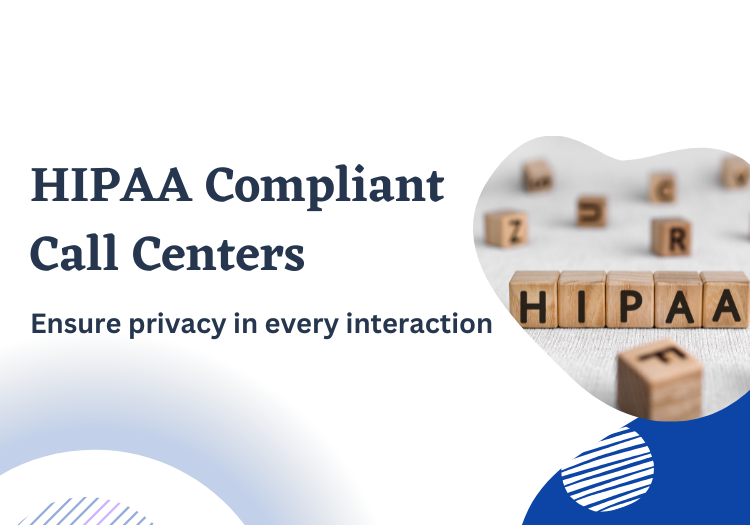


 On this page
On this page